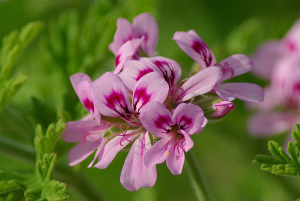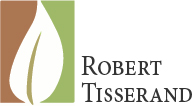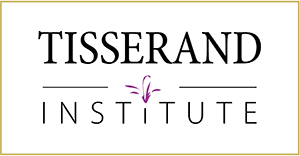An alleged ingredient of geranium oil is now one of the latest performance-enhancing supplements, and has already been linked to two fatalities. In the 1940s, Eli Lilly developed and patented a nasal decongestant known as Forthane. The active ingredient was methylhexaneamine (MHA), also known as 2-amino-4-methylhexane, 1,3-dimethylpentylamine (1,3 DMAA) or “geranamine”. Some companies are now pitching this as “geranium oil extract”, citing various aromatherapy authors (including myself) to show that geranium oil is safe and harmless. But is MHA even a constituent of geranium oil?
 A Chinese paper (Ping et al 1996) claims that MHA constitutes 0.66-1.0% of (presumably Chinese) geranium oil, though amines have never previously been reported in any essential oil. Volatile amines do exist, but their chemical structure makes occurrence in an essential oil extremely unlikely. Even if the MHA was being extracted from geranium oil, at current wholesale prices of the oil, and assuming a 1% concentration, the cost of the extracted MHA would be about $20 per gram. Then add the cost of extraction, product manufacture, plus distributor and retail mark-ups. Legally, “geranium oil extract” is not a banned substance, but this is looking like a very grey area.
A Chinese paper (Ping et al 1996) claims that MHA constitutes 0.66-1.0% of (presumably Chinese) geranium oil, though amines have never previously been reported in any essential oil. Volatile amines do exist, but their chemical structure makes occurrence in an essential oil extremely unlikely. Even if the MHA was being extracted from geranium oil, at current wholesale prices of the oil, and assuming a 1% concentration, the cost of the extracted MHA would be about $20 per gram. Then add the cost of extraction, product manufacture, plus distributor and retail mark-ups. Legally, “geranium oil extract” is not a banned substance, but this is looking like a very grey area.
In August 2011, Health Canada announced: “DMAA, a substance used in sports and weight loss supplements and reported by some to be a natural constituent of geranium oil, is not isolated from plants and products containing it need drug authorization.” In the same month, The American Herbal Products Association announced a trade requirement for the labeling of products containing the ingredient 1, 3-dimethylamylamine (DMAA). The trade requirement, which becomes effective on January 13, 2012, requires that “AHPA members do not label 1,3-dimethylamylamine, whether identified by this name or any synonym, as geranium oil or as any part of the geranium plant, whether by the common name of geranium or by the botanical name of any plant known as geranium”. In 2010, the World Anti-Doping agency banned MHA, under its “stimulants” category.
Why all the rukus? Because MHA is now suspected of causing the deaths of two US soldiers from cardiac arrest. Both had taken a pre-workout supplement thought to contain MHA, and toxicology tests confirmed its presence in their blood. The US military has now pulled all MHA-containing supplements from its stores, world-wide. The Army initiated a safety review after compiling records of several other MHA users reporting health problems such as “kidney and liver failure, seizures, loss of consciousness, heat injury and muscle breakdown during exertion and rapid heartbeat,” Army spokesperson Maria Tolleson told Stars and Stripes.
This has been a disaster waiting to happen. In February 2011, Nutrition Business Journal (NBJ) reported in depth on the chorus of voices raising alarms about “geranium extracts” in preworkout supplements, a category of sports nutrition with outsized growth rates and sales topping $100 million in geranium-inclusive products alone, according to industry sources. At the time, NBJ called this “the next nightmare” to hit the supplements industry and, through subsequent publications and presentations, called on industry to head off another ephedra by taking matters into its own hands. This did not happen, and now the expected nightmare is upon us.
Ping Z, Jun Q, Qing L 1996 A Study on the Chemical Constituents of Geranium Oil, Journal of Guizhou Institute of Technology 25 (1): 82–85


If “geranium oil extract” is not really a natural extract but rather synthetically produced 1,3 DMAA is it legal for a weight loss supplement company to claim their product is “all natural” if it states on the label that it contains geranium oil extract?
Great question Russ, and legally I don’t know. In food supplements, food flavorings, perfumes and personal care products, manufacturers often work on the basis that a substance that occurs in nature can be labeled as ‘natural’ even if it is synthetically produced. Makes no sense to me!
If the supplement contains geranium oil rather than geranium oil extract, could one assume the levels of DMAA to be safe?
Yes Beverley, there will be no DMAA.
So, you’re saying that geranium oil extract is not safe?
I’m saying that
(a) There is no such thing as “geranium oil extract”.
(b) Geranium essential oil is safe to use.
(c) Geranium essential oils contain no DMAA.
(d) Preparations that contain MHA, also known as DMAA, may not be safe. The FDA has announced that it is currently investigating DMAA.
Ok, I am a little confused. So, does the ingredient that is dangerous in the weight loss supplements the synthetic version of geranium oil? If that is the case why don’t the weight loss companies just use the real geranium essential oil in their products? Would it be just as effective?
Thanks,
Cheryl
Hi Cheryl, DMAA is generally used in sports supplements for weight loss, body-building (yes, both) or as a stimulant and performance enhancer. Whether it has any of those effects is disputed, but geranium oil certainly does not, and DMAA is not in any way related to geranium oil. Unfortunately there are no essential oils that have been shown to cause weight loss in humans!